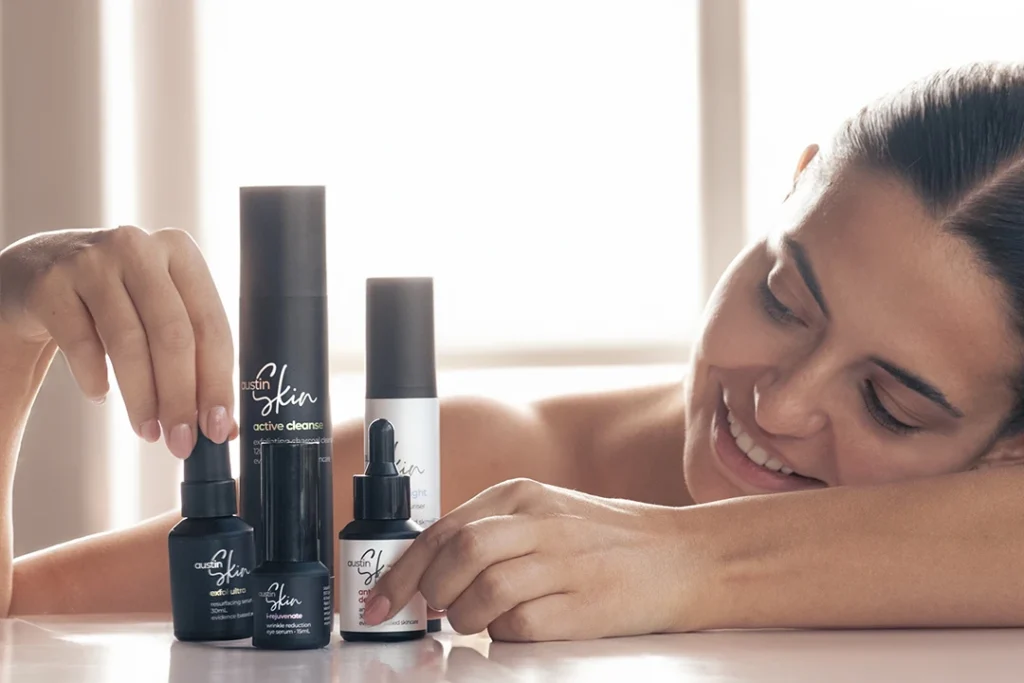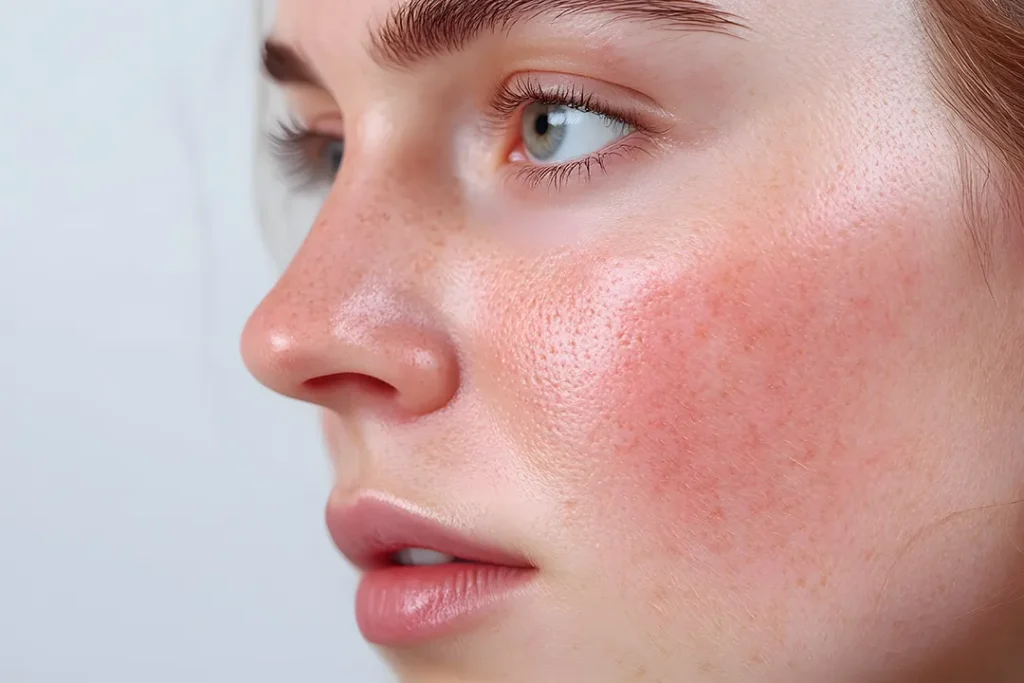In this article, we invite you to join us in exploring how AI is redefining the world of skin, enhancing diagnostics, and making personalised skincare accessible to everyone.
AI in Skin Cancer Diagnostics
One of the most exciting applications of AI is in the field of skin, where AI-driven technology has made remarkable progress in diagnosing skin cancer. Skin cancer, especially melanoma, is one of the most dangerous types of cancer, but it can be highly treatable when detected early.
Traditional skin cancer diagnosis typically involves a doctor visually examining moles or lesions, which can be time-consuming, subjective, and, in some cases, limited by accessibility to a doctor. AI, however, is changing the game by enabling more accessible skin cancer diagnostics.
How AI Skin Cancer Diagnostics Work
AI-powered diagnostic tools use machine learning algorithms to analyse images of moles, spots, and lesions. These algorithms are trained on extensive databases containing thousands, sometimes millions, of images of both benign and malignant skin conditions. Through this deep learning process, AI systems learn to identify patterns, shapes, and colours associated with different types of skin cancer.
In a future scenario, a patient might use an app to take a photo of a suspicious mole, and the AI-powered system would provide an initial assessment based on that image. The AI then compares the image against its vast database and can flag moles that are likely to be cancerous, allowing patients to seek timely professional human medical advice.
AI vs Traditional Diagnostic Methods: Which is More Accurate?
Surprisingly, AI has been shown to be highly effective in detecting skin cancer, sometimes even outperforming dermatologists in clinical studies. For instance, a study published in the Annals of Oncology found that AI was able to correctly identify skin cancer in about 95% of cases. “Austin Clinic doctors don’t fear AI,” explains Dr Austin. “We embrace it and look forward to it becoming a powerful tool to support and enhance our diagnostic capabilities and provide better outcomes.”
AI’s ability to identify skin cancer with high accuracy means that it can serve as an invaluable early-detection tool for people in more remote areas. “With AI-backed diagnostics, the potential to save lives is profound,” observes Dr Austin. “However, it’s essential to remember that while AI can provide initial assessments, any concerning findings should be confirmed by a medical professional.”
You, Your Skin and AI
If there’s one thing we know about skincare at Austin Clinic, it’s that there is no one-size-fits-all approach. Everyone’s skin is different, and factors such as genetics, environment, and lifestyle all influence what our skin needs. This is where AI shines by helping tailor skincare routines that are as unique as our skin.
AI-powered companies and the skincare experts they partner are revolutionising personalisation by using data to craft skincare routines specific to an individual’s skin type and concerns. AI doesn’t just stop with an initial recommendation. Over time, it can track how a user’s skin responds to the routine, adjusting recommendations as needed.
Real-Life Examples of AI-Driven Personalisation in Skincare
Many skincare brands and startups are embracing AI to help people build effective routines. Companies such as Proven and Atolla, for instance, use AI to develop customised skincare products tailored to individual needs. Proven has an online quiz that gathers data on over 47 factors, from skin type through to environmental factors, to formulate unique skincare products for each customer. Atolla goes a step further by sending test kits to users, allowing AI to gather real-time data and adjust formulations as needed.
Personalised skincare with AI isn’t just about customising products, it’s also about education. As users receive products suited for their skin, they’re learning more about what works for them, encouraging informed decisions about skincare products and routines.
The Limitations and Future Potential of AI for Skin
While AI is making incredible strides, it is not without limitations. Skin cancer diagnostics performed by AI are not perfect and should always be confirmed by a living, breathing doctor well trained in skin. Yes, AI-driven personalisation is becoming more refined, but it remains imperfect and may miss nuances, such as seasonal skin changes or reactions to certain products that only a trained professional or experienced user could catch.
In the future, we might see AI integrate even more seamlessly into daily skincare routines. “Imagine a world where AI-powered mirrors in your bathroom scan your skin daily,” says Dr Austin. AI would alert you to changes you might not see and make real time adjustments to your skincare routine based on environmental factors and stress levels. “With advancements in wearable technology, it may soon be possible to monitor skin hydration and pH levels, providing even more precision.”
Austin Clinic is All-In On AI
AI is truly changing skin care, making it more accessible, customised, and effective than ever before. While we’re only scratching the surface of what AI can achieve, it’s clear that this technology has the potential to change the skincare landscape forever.
By improving skin cancer diagnostics and delivering hyper-personalised skincare routines, AI enables Austin Clinic to empower our clients to take charge of their skin health and beauty in exciting, innovative ways. Whether you’re looking to prevent wrinkles, manage acne, or just keep your skin looking radiant, AI can bring us all closer to understanding exactly what our skin needs. It’s an exciting time as AI continues to bridge the gap between science and self-care, one personalised recommendation at a time.




